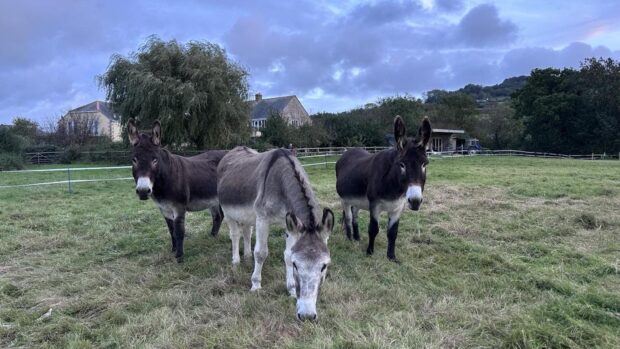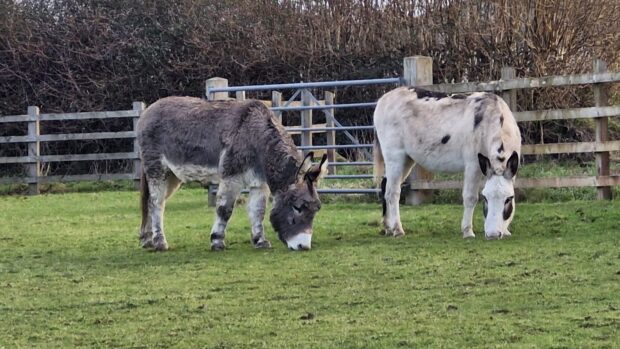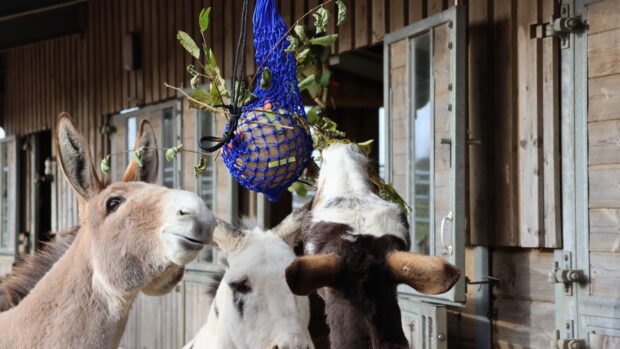Researchers are hoping to find out more about how ponies and donkeys use shelter.
The project, titled “protection from the elements in donkeys and horses”, will focus on more than 150 donkeys and ponies for a year.
It will look at how they use manmade and natural cover and how they dissipate heat under different weather conditions.
The Donkey Sanctuary will be working alongside Canterbury Christ Church University, the University of Sussex, the Dartmoor Pony Heritage Trust and national horsemanship practitioner Lucinda McAlpine.
| Popular articles |
“Investigating how donkeys and other equines use shelter throughout the seasons helps us to understand their unique needs,” said researcher Faith Burden from the sanctuary.
“By improving our understanding of the needs of donkeys and other equines, we hope to help advise owners on improved management practices and to influence legislation relating to the keeping of domestic equines.”
She added that donkeys have evolved to live in warm, dry climates and that the researchers are interested to find out if they make use of manmade protection when in cold, wet climates like the UK.
The project will have two strands to it: a behavioural study of shelter use and a heat loss study using infrared thermography.
The researchers hope that the results will tell them what factors influence donkeys’ and ponies’ choice to seek protection from the elements and what features of a shelter are important.
A spokesman from the charity said that there have been no scientific studies assessing the shelter needs of donkeys.
He added it is widely believed that donkeys are less adapted to wet, temperate climates than horses and often need manmade cover as well as natural protection and rugs.
Founded by Dr Elisabeth Svendsen in 1969, the sanctuary supports project to alleviate the suffering of donkeys in 30 countries worldwide.
It also provides donkey-assisted therapy as well as therapeutic visits to care homes in the UK.




